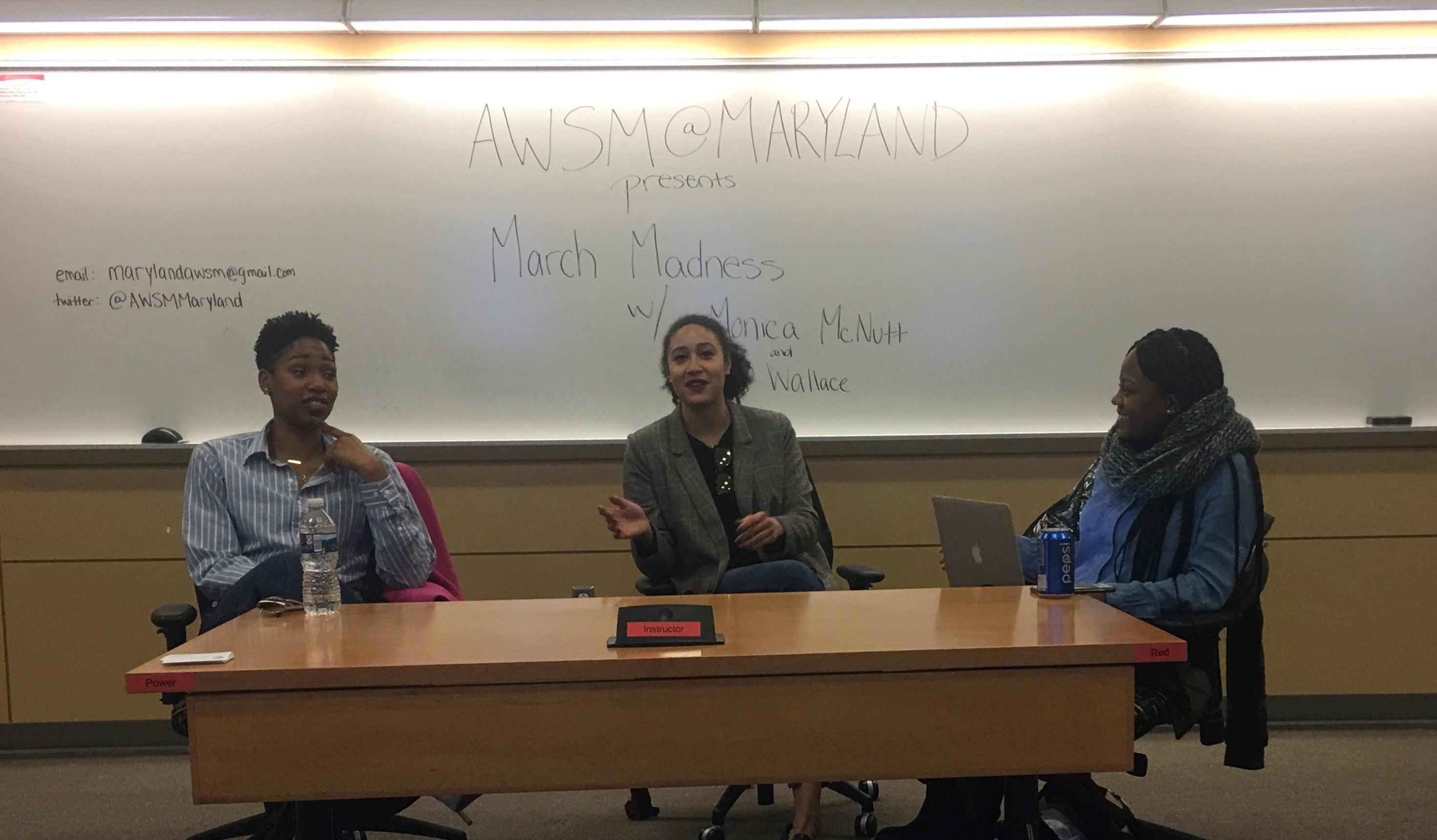By Elie Kern
For The Diamondback
For college basketball fans, there’s nothing more exciting, chaotic or emotional than watching the Division I men’s and women’s NCAA basketball tournaments.
But for journalists like Monica McNutt, an analyst for Fox Sports, and Ava Wallace, a reporter for The Washington Post, balancing the drama, emotions and workload of covering the tournaments can be a challenge.
On Tuesday, McNutt and Wallace spoke about their work at a panel hosted by the University of Maryland chapter of the Association for Women in Sports Media, a worldwide organization that promotes women who want careers covering sports.
For Wallace, the schedule of the NCAA tournament — which runs from March 19 to April 8 for men and March 22 to April 7 for women — is such a busy time that exhaustion is simply not an option.
“In April, we feel tired, but there’s no time in March to feel tired,” she said at Knight Hall.
[Read more: UMD fan, ESPN journalist Tisha Thompson talks objectivity in covering your favorite team]
McNutt, who earned a master’s degree in journalism from this university in 2013, agreed: “It’s crazy and it’s maddening, but it’s what you live for.”
As for the women’s tournament, Wallace said some people view it as a lesser event than the men’s.
“It sometimes feels like we are working for a cause or doing a service,” she said. “And what does kind of piss me off the most is that there are some organizations that think because you are covering women’s sports as a woman, you can’t write anything bad about it.”
While the work can be stressful, both women said the fun of covering the games outweighs the headaches, such as constant travel to venues across the country and keeping track of the dozens of teams.
Wallace said she uses a huge color-coded notebook to stay organized.
[Read more: Maryland’s Sasho Cirovski: Youth coaches shouldn’t prioritize wins over player development]
Most of the work — such as attending practices, watching game film, studying statistics and talking to players and coaches — is done the day before each game, McNutt said. She added that every year she has to remind herself to live in the moment during each game because she knows she will miss it when it’s over.
“You have to enjoy it because it comes and goes so quickly,” she said. “If you get too caught up in any of it, you’ll look up, and it’ll all be over. And then you’ll be really sad because there’s no more college basketball.”
Throughout the regular season, it can be difficult to get access to players and coaches for interviews and press conferences, McNutt said, but during the tournament, it’s the exact opposite.
“During the tournament, the NCAA wants the media to get every piece of information that they can,” she said. “They don’t just want to, they have to.”
This can be a blessing and a curse for journalists covering the event, Wallace said. When every reporter has equal access to the same information, finding something that separates her story from everyone else’s can be difficult.
“You’re all fighting for the same access, you’re all getting the same quotes,” Wallace said. “It comes down to those little things, like skipping the press conference and going straight to the locker room before anybody else is there.”
Junior journalism major Dylan D’Andrea was eager to hear what it’s like covering the tournament from a journalist’s perspective.
“I’ve always loved watching the tournament,” D’Andrea said. “So it was so cool to be able to talk to and hear about what it’s like from the other side.”



